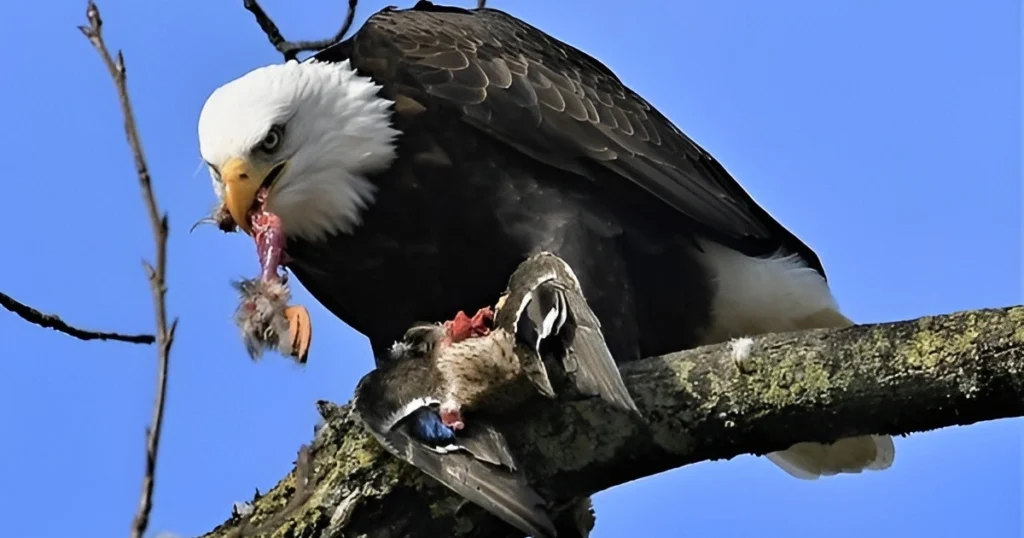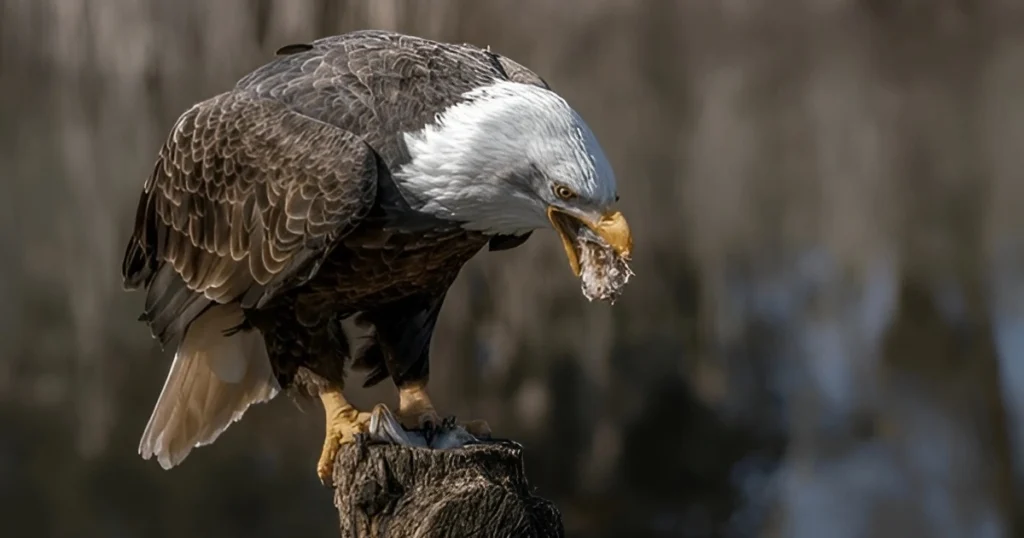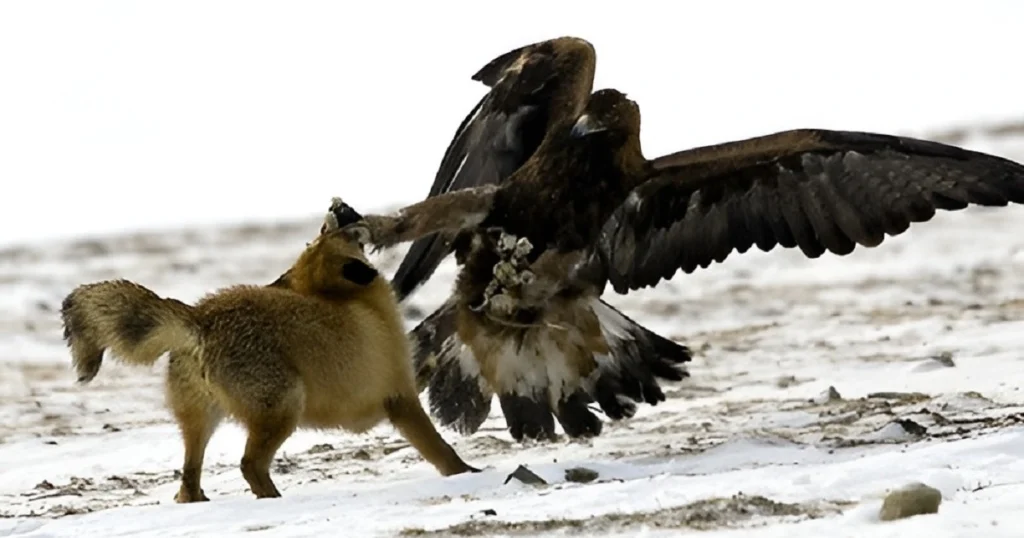
With their imposing presence and keen hunting prowess, Eagles have captivated human imagination for centuries. These majestic birds of prey are known for their remarkable hunting abilities and formidable talons. However, a question often arises is do eagles eat other wild animals? Do eagles eat scorpions? Can eagles eat skunks? Do eagles eat bobcats? This comprehensive article delves into the intriguing world of eagle feeding habits to uncover the truth behind this question.
Eagles are apex predators, meaning they occupy the top position in the food chain within their ecosystems. Their hunting behavior is characterized by opportunism, adaptability, and efficiency. To understand whether eagles consume other wild animals, it's essential to grasp their behavior and dietary preferences:

Eagles exhibit a diverse range of dietary preferences, which vary depending on factors such as geographical location, habitat, and seasonal availability of prey. While their primary diet consists of small mammals, birds, and fish, eagles have been known to consume other wild animals under certain circumstances:
Although eagles primarily target smaller prey, there are documented cases of them hunting larger animals. For example, in Alaska, bald eagles have been observed feeding on carcasses of deer during harsh winters when other food sources are limited. Similarly, golden eagles have been known to take down lambs and young goats in areas where they coexist with livestock.

Eagles possess a suite of adaptations that make them efficient hunters in their respective environments:
As apex predators, eagles play a crucial role in maintaining the balance of ecosystems:

Despite their importance, eagle populations face various threats to their survival, including habitat loss, pollution, and illegal poaching. Conservation efforts are therefore essential for ensuring the long-term viability of eagle populations:
If you're experiencing issues with wildlife or pest infestations on your property, Critter Stop is here to help. Critter Stop is a professional humane wildlife removal company specializing in safely and humanely removing unwanted wildlife from residential and commercial properties. With their expert team of wildlife removal specialists, Critter Stop can effectively address a wide range of wildlife-related issues, including:
Critter Stop has a fantastic reputation, and customer reviews online because it provides high-quality work and great customer service. If you need wildlife removal services, don't hesitate to call Critter Stop at (214) 234-2616 for a free inspection and evaluation of your property.
In conclusion, while eagles primarily feed on small mammals, birds, and fish, they can prey on larger animals under certain circumstances. Their opportunistic nature and powerful hunting adaptations enable them to adapt to various prey sources, including other wild animals. Understanding eagles' feeding habits provides valuable insight into their role in the ecosystem and the dynamics of predator-prey relationships. By supporting conservation efforts and raising awareness about the importance of eagle conservation, we can help secure a bright future for these iconic birds.
As experts in wildlife removal and pest control, we understand the importance of knowing which animals eagles consume. Below are some frequently asked questions regarding eagle feeding habits:
While eagles primarily feed on mammals, birds, and fish, they are not known to prey on scorpions. Eagles typically hunt for larger prey such as rodents, rabbits, and small birds, utilizing their powerful talons and keen eyesight to capture their targets.
Although eagles are opportunistic hunters, they do not typically prey on skunks. Eagles prefer easier-to-catch and consume prey, such as small mammals, birds, and fish. Due to their defensive spray and potential danger, skunks are not a common food source for eagles.
While eagles can hunt larger prey under certain circumstances, they do not typically prey on bobcats. Eagles primarily target smaller mammals, birds, and fish, utilizing their hunting skills and adaptations to capture their preferred prey.
Eagles have a diverse diet that includes various mammals, birds, and fish species. Some common prey items for eagles include rodents such as mice and squirrels, birds ranging from songbirds to waterfowl, and fish found in lakes, rivers, and streams. In certain situations, eagles have been known to prey on larger animals, such as deer and young livestock.
For expert wildlife removal and pest control services in North Texas, trust Critter Stop. Contact us today for a free inspection and evaluation of your property.
Visit our Critter Library and learn more about our furry friends